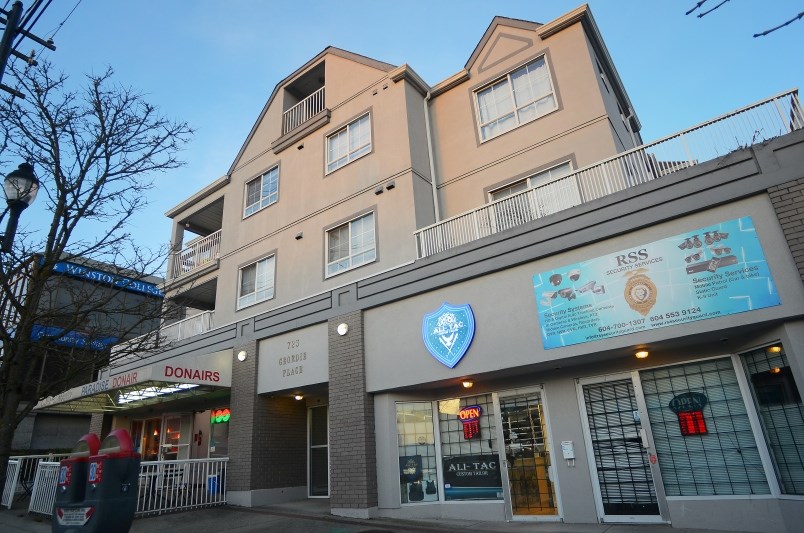The City of New Westminster is going to have to defend its efforts to address the housing crisis in court.
In January, New Westminster became the first city in British Columbia to apply new rental residential tenure zoning to existing rental housing stock. In addition to 12 city-owned properties that could be used for future municipal housing projects, the city also applied the bylaw to six existing stratified buildings that have been operating as rental buildings for many years.
While tenants and rental housing advocates praised the city’s decision, the buildings’ owners and representatives of the Urban Development Institute (a non-profit association of the development industry and its related professions) voiced concerns about the proposal and the lack of consultation. They asked the city to put the plan on hold for 90 days and warned the matter would end up in court.
They weren’t bluffing.
The registered owners of all six strata properties – V.I.T Estates Ltd., VIAM Holdings Ltd., Elmwood Apartments, 0730794 B.C. Ltd., Geordie Holdings Ltd. and 0964956 B.C. – have initiated legal action against the city. They’re asking the Supreme Court of British Columbia to declare bylaw No. 8078 to be illegal and/or void, to impose an order quashing the bylaw and to pay costs of the legal action.
In a petition to the court, the owners allege city staff provided “false, incomplete and misleading information” in relation to the purpose and effect of Bylaw 8078 to both the petitioners and to tenants living in units in the six buildings.
“The false information concerned the alleged urgent need for bylaw No. 8078 to be passed, its implication and its legal effect,” said the document.
According to the petition, the “false information” included stating that the purpose of the zoning amendment is to protect the units in these buildings as rentals in perpetuity and to prevent them from being individually marketed for sale. The petition cites official Hansard transcripts in which the Minister of Housing stated a guiding principle of the province’s legislation is that “rental housing does not intrude on the property rights of individuals who own property or who own and occupy housing in existing buildings.”
The petition alleges the city didn’t comply with mandatory requirements of the Local Government Act and states that the “hasty” process was unreasonable and errors were made regarding the public hearing.”
None of the allegations have been proven in court.
Following the public hearing, New Westminster city council unanimously adopted zoning amendment Bylaw 8078, becoming the first municipality in B.C. to apply a new rental residential tenure zoning authority to existing rental housing stock.
“This bylaw is the first step in our initiative to ensure our city has housing options for everyone,” Mayor Jonathan Cote said in a press release. “Renovictions have displaced many people from their homes and we’re taking action to preserve our rental housing stock for those who need it now and in the future.”
According to a press release issued by the city after the bylaw was adopted, the province enacted a new local government authority as an amendment to the Local Government Act in 2018. This was done in order to apply rental residential tenure zoning authority to protect the rental tenures in existing apartment buildings.
“In late 2018, it came to the city’s attention that a building that had operated as rental since its 1977 construction was being actively marketed for sale as condominium units,” Emilie Adin, the city’s director of Development services, said in the press release. “Rental Residential Tenure Zoning is the only City-led action that can protect the rental tenure of stratified rental buildings, thus relieving some of the pressures from renoviction being faced by New Westminster tenants, who represent 44 per cent of our population.”
Anne McMullin, president and CEO of the Urban Development Institute, said UDI members support the rental-only zoning if it’s used prudently and carefully without downzoning a property, such as upzoning a commercial/industrial property to rental apartments, or single-family to multi-family rental-only zoning to help address the rental vacancy issue.
“UDI is aware of the legal action a number of property owners have initiated against the City of New Westminster’s recent arbitrary downzoning of six strata rental buildings in New Westminster,” she said. “We believe New West council’s hasty use of the province’s new rental only zoning was not only an abuse of due process, but contrary to the intent of the new Residential Rental Tenure Zoning power, which will ultimately hurt the availability of rental homes New West in the long-term. We support the property owners in seeking recourse for this unfortunate and unnecessary decision.”



